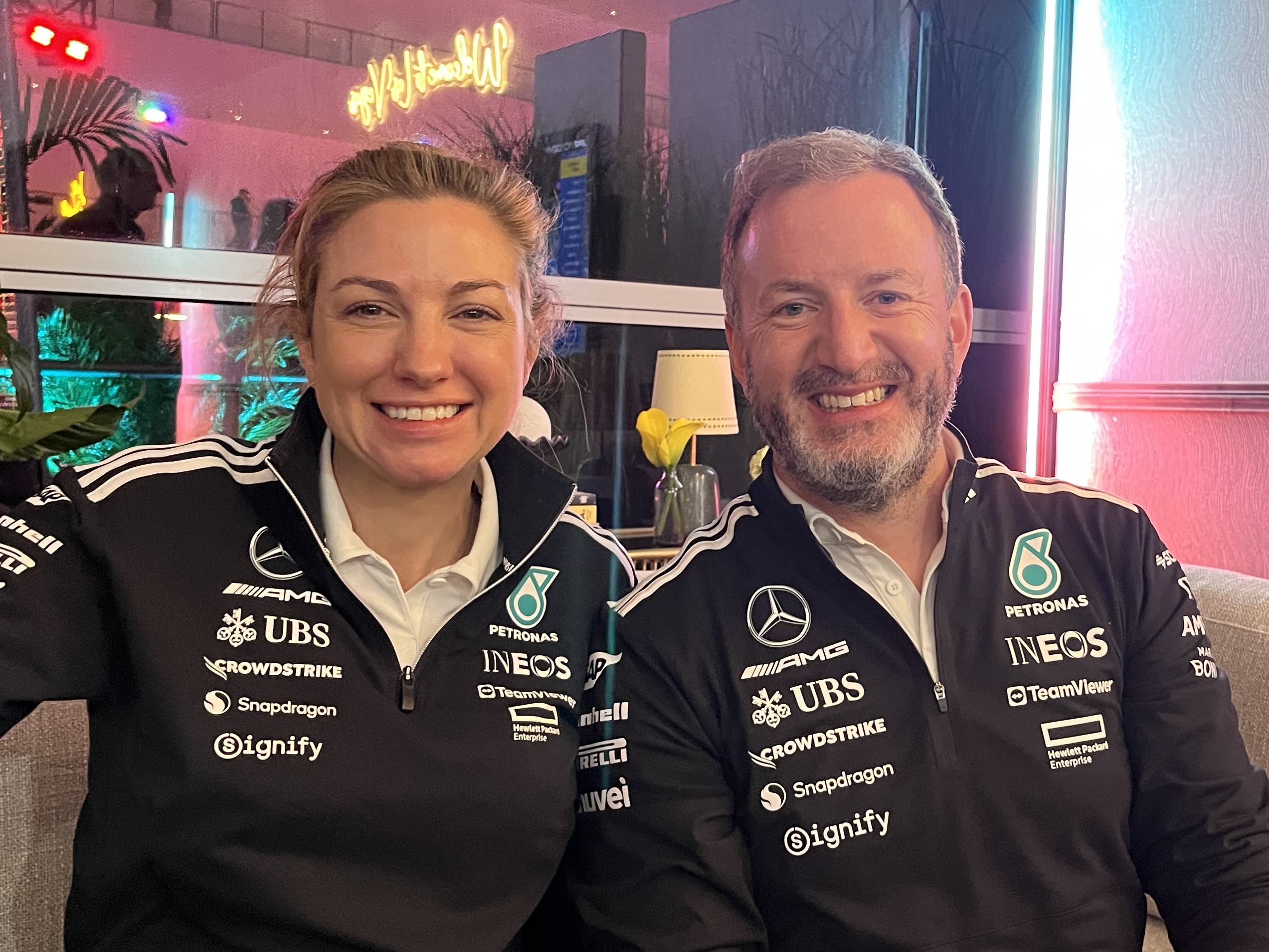Formula One may be represented on track by two cars and two drivers, but behind them operates a vast network of personnel. It is, fundamentally, a team sport. The Mercedes-AMG Petronas F1 Team — currently second in this year’s standings — is one of the most successful operations in the sport’s history, securing an unprecedented eight consecutive Constructors’ Championships from 2014 to 2021.

On November 21, The Korea Daily conducted an exclusive interview with Bradley Lord, Chief Communications Officer, and Victoria Johnson, Director of Marketing Operations, from the Mercedes team. They highlighted organizational strength and a deeply embedded “One Team” culture as the key forces behind Mercedes’ sustained success.
“Our team is 2,000 people moving in the same direction,” Lord said. “That unified sense of purpose is our most powerful competitive advantage.”
According to Lord, Mercedes sets a central “mission” each year, and every department and staff member aligns their annual goals to it. Regardless of role — whether marketing, HR, engineering, or the pit-stop crew — each individual understands precisely how their work contributes to “making the car faster.”
Transparency is also essential. During race weekends, all on-track developments are transmitted in real time to the team’s headquarters and factory in the United Kingdom. Roughly 10 percent of Mercedes’ workforce operates on site at each Grand Prix, with the remaining 90 percent continuously connected from home base.
“Trust only exists when nothing is hidden,” Johnson said. “That transparency is what allows us to function as one team.”
Another defining element of Mercedes’ culture is its emphasis on honesty and resilience. “We don’t avoid problems — we confront them,” Lord said. “The focus is always on solving the issue, not assigning blame.” New employees, he noted, are often most surprised by how openly the team discusses setbacks and how candidly colleagues exchange feedback.
Johnson echoed that sentiment: “What sustains this team, even in seasons without wins, is constructive criticism and collective resilience. What makes Mercedes ‘Mercedes’ is the way the team pushes each other forward during difficult periods, not just the successful ones.”
She explained that in challenging seasons, internal meetings and cross-team reviews increase, with failures analyzed openly to drive improvement.
Technical capability remains another decisive factor. “Races are won at the factory, not on the track,” Lord said. “Your fate is determined by how quickly you can improve performance and turn ideas into real components.” Mercedes continues to make top-level investments in areas such as computational fluid dynamics (CFD), simulation, and composite manufacturing. The team is also expanding technology partnerships with global companies, including Meta, SAP, and CrowdStrike. With CrowdStrike CEO George Kurtz recently joining as a team co-owner and technical advisor, Mercedes expects to accelerate innovation driven by artificial intelligence.
Both Lord and Johnson spoke highly of the Korean market. Reflecting on the team’s demo run in Korea last month, Johnson said, “The passion we saw in a country without an F1 grand prix was remarkable. Merchandise sales, fan reactions, driver popularity — everything exceeded expectations.” Lord added, “Korean fans have always stood out, even during the Korea Grand Prix years (2010–13). I still remember seeing those full grandstands.”
Mercedes is planning additional events across Asia, including Korea, and is considering launching Korea-exclusive merchandise next year.
The two leaders also expressed optimism about the possibility of Korea hosting another F1 Grand Prix. “Korea is absolutely a competitive market,” Johnson said. Lord added, “F1’s dream is a street race in a global city like Seoul. If it came to fruition, it would be one of the most iconic scenes in world motorsport.”
BY KYEONGJUN KIM [kim.kyeongjun1@koreadaily.com]



